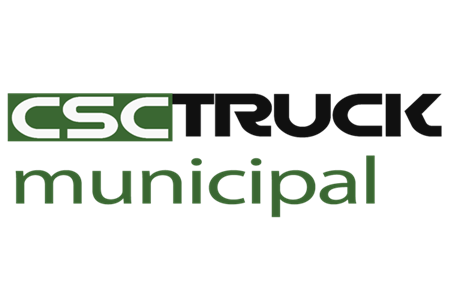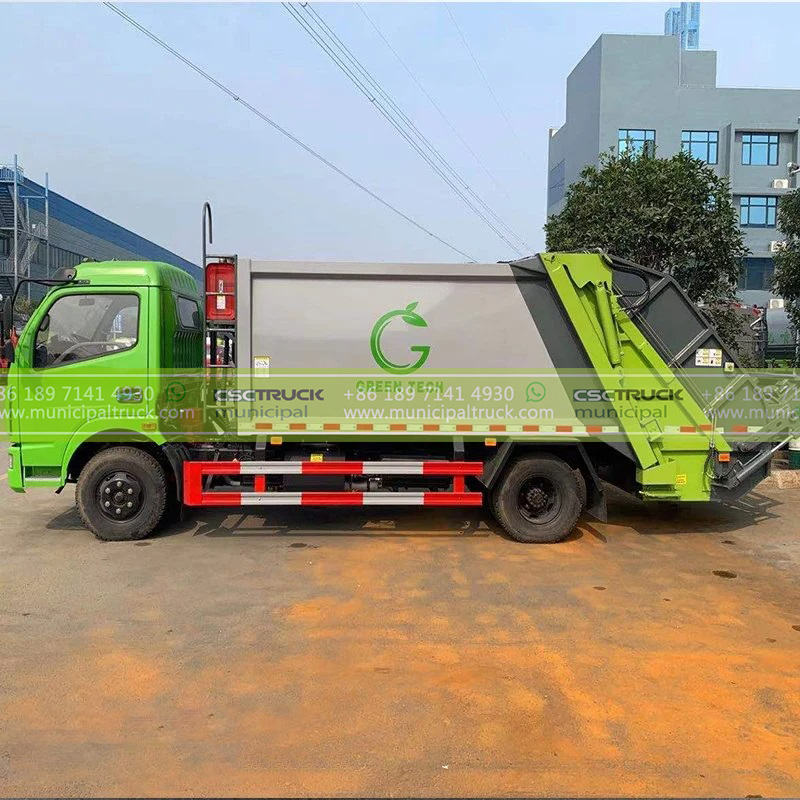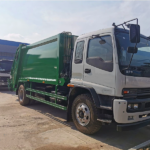Strategic Coastal Infrastructure Modernization
Amid escalating tourism volumes straining Muscat’s iconic 40-kilometer Corniche, Oman’s Ministry of Environment has deployed 15 advanced rear loader garbage trucks through a $4.7 million partnership between CSCTRUCK Municipal and Oman National Waste Management (ONWM), the Sultanate’s premier environmental services provider. This intervention targets critical vulnerabilities along the UNESCO-proposed coastal heritage zone—where seasonal tourist influxes generate 8.5 tons of daily waste during peak months, overwhelming legacy collection systems and threatening marine ecosystems through wind-blown plastic leakage into the Gulf of Oman.
The CSCTRUCK RL-800S fleet, operational ahead of the October tourism surge, features marine-optimized configurations including seawater-resistant compaction chambers and extended hoppers enabling single-pass collection of 18 m³ waste—double the capacity of previous units. “Preserving our coastline demands engineered solutions beyond conventional sanitation,” stated Environment Minister Dr. Salim Al-Abri during the handover ceremony, noting the trucks’ integration with Oman’s Blue Economy 2040 vision. Initial deployments along Al Mouj and Qantab Beach corridors project a 60% reduction in shoreline litter persistence and 45-minute emergency response to spill incidents through synchronized municipal alert networks.
Engineering Resilience for Maritime Climates
Marine-Environment Adaptation
Specifically engineered for Oman’s extreme coastal conditions—from salt spray corrosion to 98% summer humidity—the trucks incorporate three proprietary systems:
- Titanium-reinforced compaction rams resisting pitting corrosion in high-saline air
- Negative-pressure sealing containing microplastic particles during 50 km/h coastal winds
- Hydrophobic waste chutes preventing organic adhesion during 42°C operational peaks
This configuration enables continuous operation along Muscat’s corniche without the hourly maintenance stops previously required for salt accumulation removal. Accelerated aging tests confirm 12,000-hour service life in marine environments—tripling the durability of Oman’s retired fleet—while specialized bio-lubricants eliminate hydrocarbon contamination risks during hydraulic leaks near sensitive intertidal zones.
Intelligent Tourism Response
Integrated with Oman’s Smart Coast sensor network, the fleet utilizes predictive collection algorithms cross-referencing cruise ship manifests, beach occupancy cameras, and tide schedules. “Our systems pre-deploy trucks before waste accumulation thresholds are breached,” explained CSCTRUCK’s Gulf Director Faisal Al-Harthy, demonstrating how AI reduces unnecessary vehicle movements by 55% during sensitive turtle nesting seasons. Driver consoles display real-time conservation alerts, automatically disabling compaction within 200 meters of protected mangrove reserves during migratory bird arrivals.
Localized Industrial Development and Gulf Cooperation Synergies
The CSCTRUCK-ONWM collaboration establishes Oman’s first coastal sanitation technology center at the Duqm Special Economic Zone, featuring certified training programs for 120 Omani technicians in marine waste management protocols. Crucially, the contract includes technology transfer provisions enabling local assembly of future hook loader garbage truck platforms from 2026, alongside modular side loader garbage truck variants tailored for Muscat’s historic Mutrah Souq alleyways—addressing complementary waste challenges across urban and coastal environments.
Operational integrations demonstrate multifunctional benefits:
- Modular pod interchange: Standardized containers transferred to offshore processing barges during marine festivals
- Emergency response readiness: Rapid conversion into debris clearance units during coastal flash floods
- Tourism partnership models: Luxury resorts fund extended collection via waste-volume tariffs
“These rear loaders form the tactical backbone of our Zero Leakage Coast initiative,” declared ONWM CEO Khalid Al-Balushi, noting the design’s adaptability for Saudi Arabia’s Red Sea development corridor. With Phase 2 feasibility studies underway for Salalah and Sohar deployments—and formal expressions of interest from Qatar’s Ministry of Municipality—Oman’s fusion of maritime conservation with precision logistics sets new operational benchmarks for Arabian Peninsula coastal cities.
This deployment supports Oman’s National Waste Strategy 2025–2035 targeting 100% containment of shoreline waste. CSCTRUCK Municipal confirms identical marine-specification fleets will service Dubai’s Palm Jumeirah and Abu Dhabi’s Corniche by Q1 2026.







